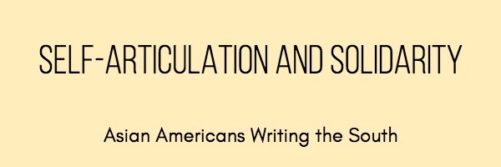Elgin
I write this at a desk a ten minute drive away from the house we vacated in 48 hours when our landlord (in Norway? In Pakistan? In Netherlands?) lost her house in a foreclosure. Yesterday, we drove back, curious to check on the house after Hurricane Harvey receded, and saw the closed fence, the overfull trash, the height of that grass. We wanted to see if the house was still standing, still holding space, still breathing ghosts.
*
The night before we arrive to transplant into our rented house, a ladder walks off missing, two snug air conditioners. The heat decides for us that we will eat cold today. We walk through the back door, past the bare walls, say hello to a discarded bike with flat tires, to the open door of a molding freezer. Small curios live in the house—a trail of cloth elephants, a dream of fabric, the stretch of a wood table. Remnants from other bodies, some wildlife still scurrying under the countertops, still eating against the grain.
*
Our almost neighbor, an older African American man who parks in the grass-filled lot next to our old house almost daily, was not there. His truck, often running, sometimes playing old soul, was not nestled up on the grass. His black plastic card table was not set up. His friends were not keeping him company. He was not napping with one eye on the street.
*
Diagonal across the street, from the front door we don’t use, an enormous orange complex—the new recreation center—finished. A renovated Emancipation Park, originally purchased by the Colored People’s Festival and Emancipation Park Association for Juneteenth celebrations. While we’ve watched it go up, handwritten letters are put in the mail slot for our absentee landlord—do you want to sell your house? Do you want to sell your house? Sell your house? A few times, we come home to handwritten notes tucked into the door handle, through the gate, asking the same question. One day, we come home to a notice full of typos declaring new ownership of the house tacked to the back door, the front door and the window. We call an old friend, is this a scam? Must be a scam.
*
Two weeks ago, this desk was the perfect vantage point for watching the water in my new street fill up and drain and then fill up again. I watched the water outside surrounded by boxes on the floor. No more dogwalkers. On the news: what to do about a attics and axes. We worry about our belongings all strung out on the floor. As the no-hype weatherman gets more hyped up, we hoist boxes up. Each hour, as the rain falls, we hoist and unpack boxes, uncover evidence of living, and listen to the water. My brother WhatApps me from Hong Kong—are you ok? Are you ok? They have just survived a typhoon. We are lucky, I say, we are still lucky.
*
Those living underneath the old house—a mouthful of lizard, a cap of cockroach, a cut of mouse, an orchestra of cat. Gossip was—a rotation of carnivore and plant crusher. An empty pot by the door, many plants die upon contact, I can’t keep them from wilting. One day, a neighbor comes by. Hey, does K still own this house? he asks, looking at us. Later, I ask C if we look like a queer couple, or some lesbians, friends or family? Do we look like we belong together, a gender-ambiguous Asian American and a white trans woman sharing an old house? Yes, we say. He points to a slouching tree ominously encroaching on our car—looks like it’s gonna fall. We thank him and he goes down the street again.
*
The first day that we moved into the neighborhood, our almost neighbor had driven slowly by high in his black truck, told us that he had a relationship with the land next door and that he visited from time to time. I felt protected under his gaze, almost comforted under his surveillance.
*
The old house was a bit lonely, a bit creaky. When you were alone, you felt a spook. Across the street, another old house with a “No Trespassing, Private Property” sign though we never saw anybody go in or out. On the last night, the only things left in the house were the clippings from my buzzed head and shrimp peels from our ransacked fridge. A stained mattress, an upended sofa slowly grew into a stack in the street across from our back door, next to an orange hanging electrical wire. A short bearded man dragged more furniture out to the pile. We looked at each other, accomplices in trash, neighbors in the night.
Welcome to makeshift neighborhood
not a lawn but a rubble of grass babied drinking
blue families
our blood under a sheet
though land no longer stitched wood and window
you active farm jacks and diamonds no longer fix doorframe
you fish a sedan through weed dirt road no longer final domestic mail and
permanent
the city grew dissidents from soft-fledged girls
who grew the sharpest stove to lock in
who fisted their way free new year
—
Ching-In Chen is the author of The Heart’s Traffic and recombinant and co-editor of The Revolution Starts at Home: Confronting Intimate Violence Within Activist Communities and Here is a Pen: an Anthology of West Coast Kundiman Poets. A Kundiman, Lambda, Watering Hole and Callaloo Fellow, they are part of the Macondo and Voices of Our Nations Arts Foundation writing communities. Their work has appeared in The Best American Experimental Writing, The &NOW Awards 3: The Best Innovative Writing, and Troubling the Line: Trans and Genderqueer Poetry and Poetics. They are a senior editor of The Conversant and poetry editor of the Texas Review. They currently teach creative writing at Sam Houston State University. www.chinginchen.com

